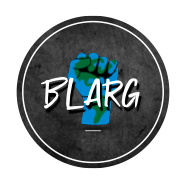Community Waste Audit
In Summer/ Fall 2021, BLARG did a community waste audit throughout Brookhaven Town! BLARG trash ninjas (aka waste audit volunteers) sorted Brookhaven Town's trash on garbage day to get the real story on the waste that our community is producing, incinerating, and then landfilling as ash.
Why do a waste audit? Why is it important?
Why conduct a waste audit?
A waste audit helps you discover what waste is being generated by you, your community, etc.
Learn what things you are you not recycling. You will find things you don’t expect!
Review overall purchasing and management decisions.
Figure out how to better reduce waste.
Plan how you can recycle more—what bins are needed, where are they needed, what systems can be put into place, what training is needed, etc.
How do you conduct a visual waste audit?
Step 1: Make sure you have the proper equipment. Tarp, work gloves, a reflective vest, and a rake.
Step 2: Dump out the trash onto the tarp and start separating the different types of trash.
Step 3: Once you have all the types of trash separated, take a picture and guesstimate what percentage of each type of trash there is. Then have your parter guesstimate. Agree on the percentages, then record on a spreadsheet. (Types of trash include recyclable plastic, metals, glass, paper & cardboard, non-recyclable trash, and organic waste.)
Step 4: Rake the trash back into a garbage bag for disposal. Dispose of the collected trash as determined by your team.
Want to conduct a waste audit on your home or community? Download our visual guide for more tips and tricks on getting started.
What did we learn from our waste audit?
We found a LOT of organic waste and PLASTIC!
There is more work to be done to ensure that our neighbors throughout the Town of Brookhaven are recycling the materials that are currently being collected (paper/cardboard and Plastics #1,#2, and #5).
We did observe that much of the waste in people's trash bags are items for which there is NO town recycling plan. Organic waste (including foodstuffs of all sorts) and plastics (non-recyclable - single use, mixed plastic, etc.) are a significant part of our community's waste burden!
Next steps? We need people - public partnerships to reduce waste now!
Zero waste revolution , anyone?


